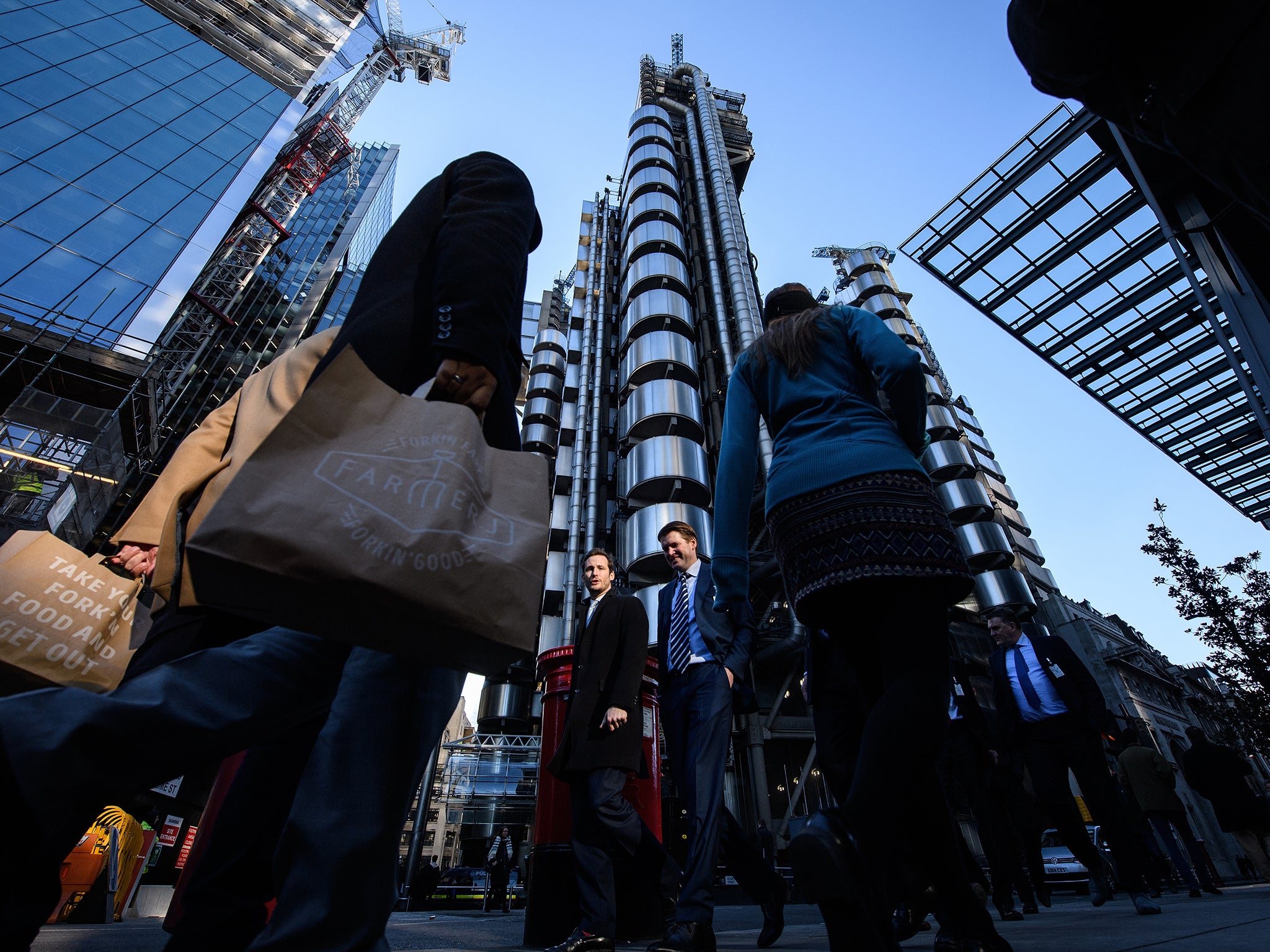UK economy stagnates but services receive boost after Tory election win
Survey’s findings offer hope for stronger output in 2020

Your support helps us to tell the story
From reproductive rights to climate change to Big Tech, The Independent is on the ground when the story is developing. Whether it's investigating the financials of Elon Musk's pro-Trump PAC or producing our latest documentary, 'The A Word', which shines a light on the American women fighting for reproductive rights, we know how important it is to parse out the facts from the messaging.
At such a critical moment in US history, we need reporters on the ground. Your donation allows us to keep sending journalists to speak to both sides of the story.
The Independent is trusted by Americans across the entire political spectrum. And unlike many other quality news outlets, we choose not to lock Americans out of our reporting and analysis with paywalls. We believe quality journalism should be available to everyone, paid for by those who can afford it.
Your support makes all the difference.Britain’s dominant services sector may have received a boost from the decisive result of the general election but it is still mired in stagnation, according to a snapshot survey of employers.
The final services purchasing managers’ index was revised up to 50.0 in December from an early estimate of 49.0, on a scale where 50 marks the divide between expansion and contraction.
The rise may have come because the later responses to the survey were boosted by the result of the election, analysts said on Monday. This revision took it above November’s reading of 49.3.
“Any improvement in the sector’s fortune is of course welcome, but this small improvement to the ‘no change’ mark means stagnation is also a possibility,” said Duncan Brock, group director at the Chartered Institute of Procurement & Supply (CIPS), which published the report.
“Other clouds of uncertainty must also include the potential for further political instability as negotiators and policymakers take the next steps.”
The survey’s finding did offer hope for stronger output in 2020. The forward-looking business expectations index was the highest since September 2018.
“The modest rebound in new work provides another signal that business conditions should begin to improve in the coming months, helped by a boost to business sentiment from greater Brexit clarity and a more predictable political landscape,” said Tim Moore, economics associate director at IHS Markit, which compiled the survey.
Economists said that investors would now be looking for confirmation of a post-election boost in data to be published this month. Thomas Pugh, UK economist at consultancy Capital Economics, said markets would be looking at the “flash” estimates of output from the construction manufacturing and services sector on 17 January to see whether it might stop the Bank of England from cutting interest rates.
“If this post-election bounce is repeated in other data … then it will probably be enough to prevent more Monetary Policy Committee members from voting for a rate cut,” Mr Pugh said. “But if there isn’t an uplift in the data over the next few months, then the MPC may step in to support the economy.”
However, any upturn comes against an anaemic background. The seasonally adjusted composite index of all sectors registered 49.3 in December, unchanged from that seen in November and the joint-lowest since July 2016.
The stabilisation of service sector activity in Monday’s figures was offset by a sharp and accelerated decline in manufacturing output to 45.6.
Economists are not expecting a cut in governor Mark Carney’s final meeting this month, with the financial markets only pricing in a 10 per cent chance of a move. However, the odds of a rate move by August rise to evens.
Join our commenting forum
Join thought-provoking conversations, follow other Independent readers and see their replies
Comments